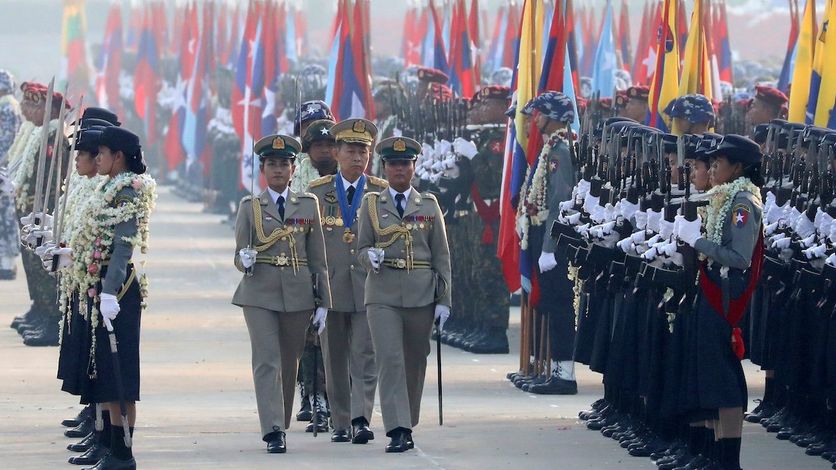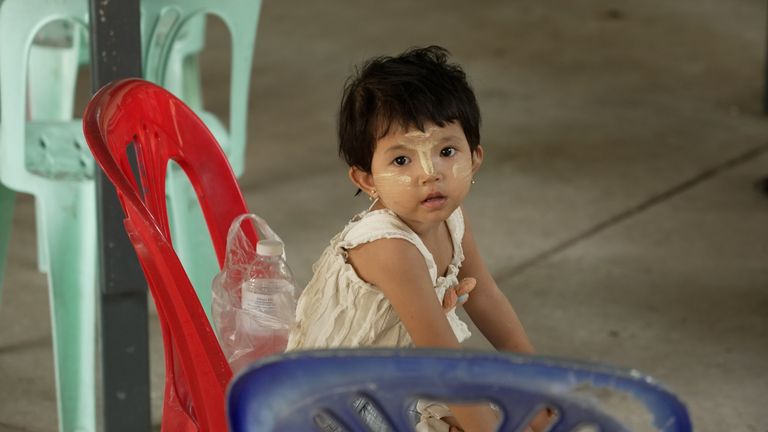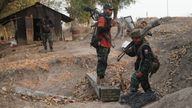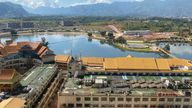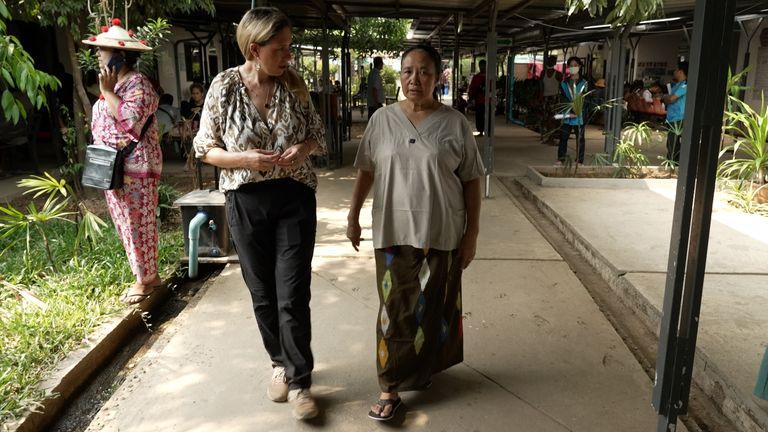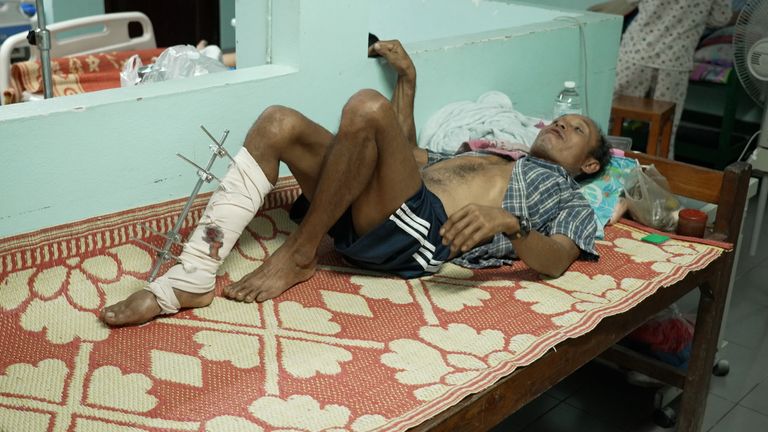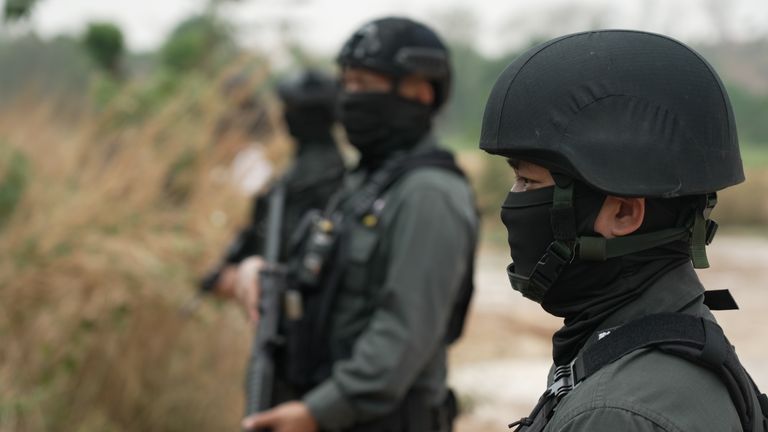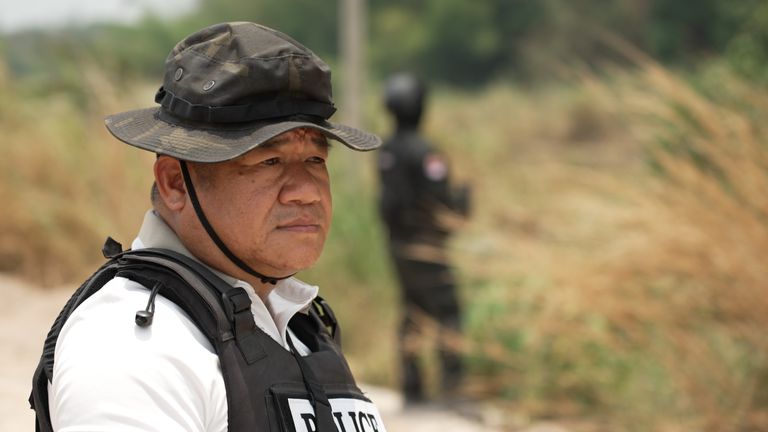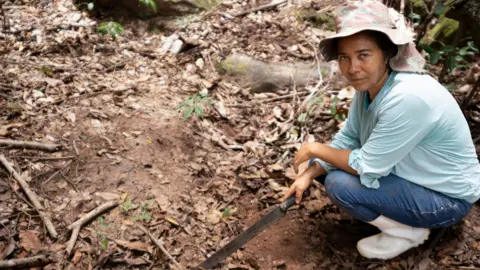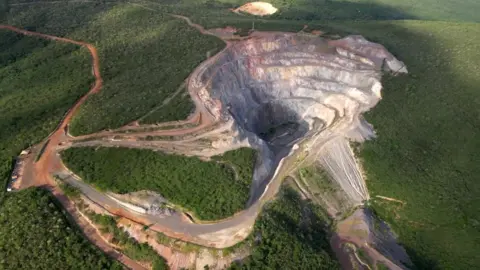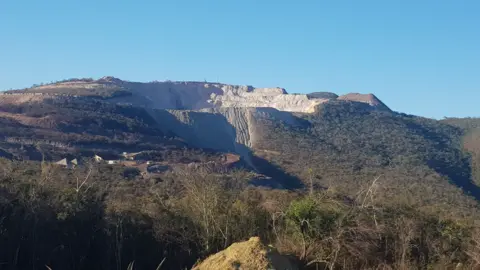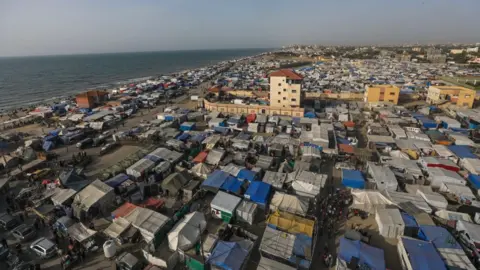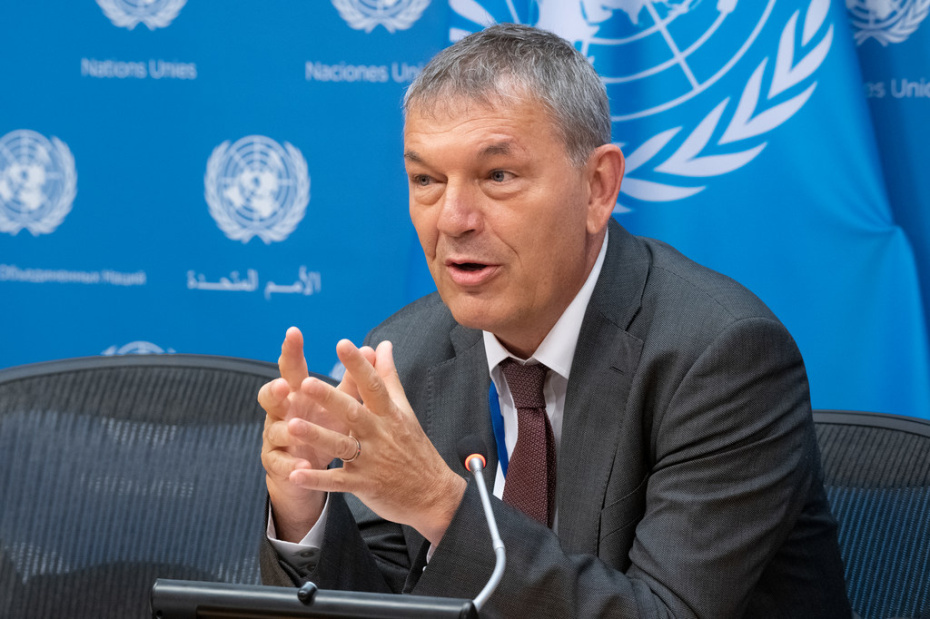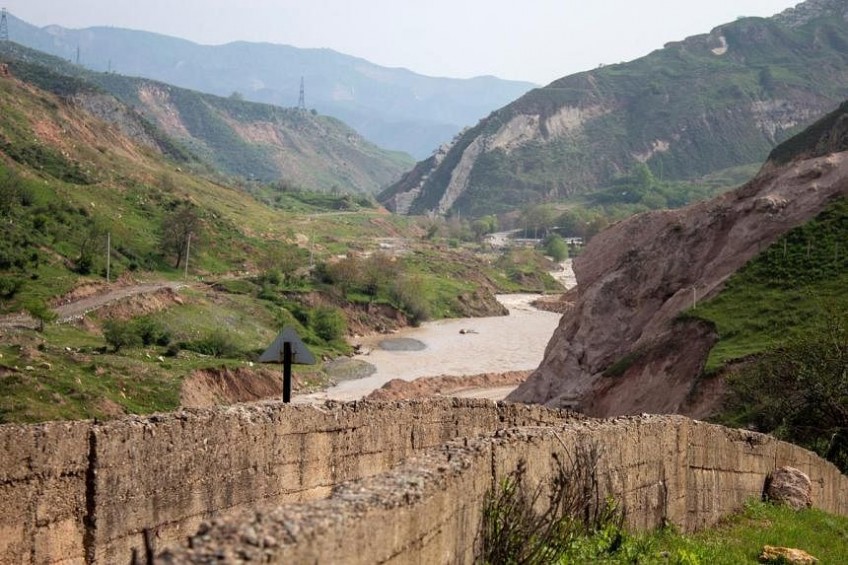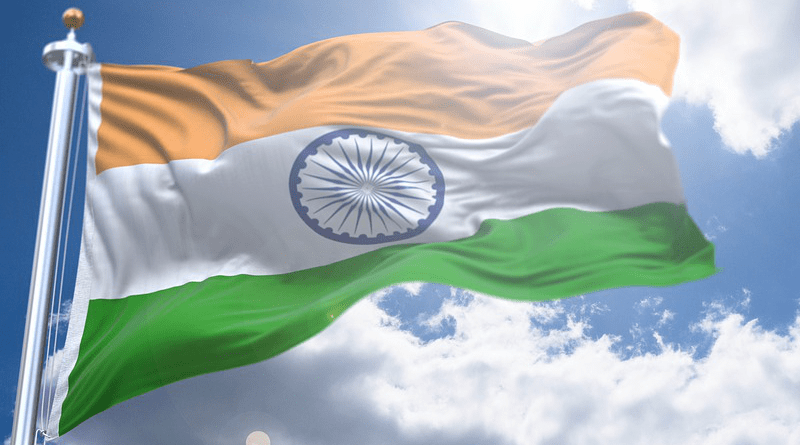
Modi Led Hindutva Politics: A Threat To Indian Citizenship – OpEd
Mr. Narendra Damodardas Modi, serving as the 14th Prime Minister of India, has successfully completed two terms in office and is now seeking re-election for a third term in the forthcoming 18th Lok Sabha elections. Widely recognised as a prominent figure in Hindutva politics, Modi is often viewed as the face of a political ideology marked by division and animosity. Throughout his tenure, Modi has been disseminating misleading information to sway public opinion in his favour. One of the most contentious aspects of his leadership has been his portrayal of Indian Muslims as outsiders or “intruders.” This rhetoric not only underscores his divisive approach but also exacerbates religious tensions, leading to increased polarisation and communal strife in the country. Such divisive tactics not only undermine the unity of India but also pose a threat to its secular fabric and citizenship rights.
Modi’s policies and governance have often been evident for marginalising minorities, lower castes, and the working classes. This marginalisation can be traced back to the core principles of the Bharatiya Janata Party (BJP), which is deeply influenced by the Rashtriya Swayamsevak Sangh (RSS), an organisation espousing a racist Eurocentric ideology. The RSS’s emphasis on cultural nationalism and its hierarchical view of society have shaped the BJP’s approach, leading to policies that often neglect the rights and welfare of marginalised communities.
Modi’s past remarks about Indian Muslims, first likening them to “puppies” and now branding them as “intruders,” offer a telling insight into the nature of Hindutva politics rather than merely reflecting on Modi’s personal beliefs. These comments indicate a troubling tendency to overlook and undermine the secular and inclusive principles that are at the heart of India’s Constitution.
Indian Muslims have been an integral part of the country’s fabric, actively participating in its democratic processes and contributing significantly to its growth and progress. They have made invaluable contributions across various fields such as social work, science, education, history, culture, religion, language, and literature. Their role in India’s anti-colonial struggles and nation-building efforts has been substantial, often involving sacrifices that have helped shape the nation’s identity, ethos and destiny. Hindutva political forces collaborated with British colonialism in their aim to create a Hindu Rashtra. In contrast, anti-colonial Muslim leaders not only participated and sacrificed their lives but also helped shape India’s secular and scientific ethos as a modern constitutional democracy.
By branding Indian Muslims as “intruders,” Mr. Modi not only undermines the sanctity of the Indian Constitution but also negates the rich tapestry of contributions that Muslims have made to India’s diverse heritage. Such rhetoric not only threatens to erode the concept of Indian citizenship but also perpetuates a divisive narrative that undermines national unity. Moreover, Modi’s statements are deeply offensive to all Indians who uphold the principles of equality, secularism, and the rights enshrined in the Constitution. Modi and his Hindutva forces send a message that contradicts the inclusive vision of India as a pluralistic society where every citizen, regardless of their religious or cultural background, has an equal stake and contribution to make in the deepening of Indian democracy. Muslims are as much shareholders of Indian democracy as any other citizens of India.
In essence, Mr. Modi’s remarks reflect a broader Hindutva challenge to India’s foundational values and principles. The Hindutva ideology is a foreign import that has intruded into the fabric of Indian politics, society, and culture. While claiming to represent authentic Indian values, its ethnonationalistic tendencies and focus on religious and ethnic identity have more in common with European ideologies than with India’s rich and diverse history, society, and culture. Rather than drawing from India’s pluralistic traditions and composite culture, Hindutva’s roots can be traced back to European concepts of ethnonationalism, religious nationalism and racialised democracy. This imported ideology of Hindutva politics has sought to redefine Indian pluralistic identity in narrow, exclusionary terms, often at the expense of religious and cultural minorities.
Historically, there are parallels between Hindutva and the ideologies that emerged in Europe during the early 20th century. One of the most striking comparisons can be drawn with Nazi Germany, where ethnonationalism and religious intolerance were central tenets of the regime. The ideology of Adolf Hitler, with its emphasis on racial purity, scapegoating of minorities, and use of fear and hatred to mobilise the masses, seems to provide a blueprint for Hindutva political practices in India. In both cases, fear and hatred are employed as powerful tools to manipulate public opinion and garner electoral support. The Hindutva ideology can be seen as a true intruder in Indian politics, society, and culture, drawing inspiration from European ethnonationalism rather than India’s own rich traditions. Its reliance on fear, hatred, and divisive tactics undermines the principles of secularism, pluralism, and unity that are integral to India’s democratic ethos.
By stoking communal tensions and promoting a divisive agenda, Hindutva politicians seek to consolidate their power base and rally support among certain segments of the population. This approach not only undermines India’s secular and democratic principles but also threatens to unravel the country’s social fabric by fostering mistrust and animosity among its diverse communities. It’s crucial to recognise that such divisive ideologies are antithetical to the pluralistic ethos that has been a hallmark of Indian civilisation for centuries. India’s strength lies in its diversity, and any attempt to impose a monolithic vision of identity runs counter to the country’s democratic values and inclusive heritage.
The tactics employed by Hindutva politics, including its anti-Muslim propaganda and diversionary strategies, serve multiple purposes for its proponents. First, these tactics serve to distract from the ideological shortcomings and lack of substantive policy achievements within the Hindutva framework. By focusing public attention on divisive issues and fostering communal tensions, Hindutva leaders like Mr Modi can deflect scrutiny from their governance failures and policy inadequacies. Secondly, by creating a climate of fear and suspicion, Hindutva politics seeks to consolidate its voter base by appealing to religious and ethnic identities. This strategy aims to rally support among certain segments of the population by portraying minorities, particularly Muslims, as the ‘other’ or as threats to national identity and security.
However, in the long run, such divisive politics by Hindutva forces have detrimental effects on both India and its people. Firstly, it undermines the social fabric of the country by fostering mistrust and animosity among its diverse communities. India’s strength has always been its pluralistic ethos, which celebrates its rich cultural, linguistic, and religious diversity. Hindutva’s divisive agenda threatens to erode this diversity by promoting a narrow and exclusionary vision of Indian identity. Secondly, the focus on divisive issues and religious polarisation detracts from addressing the real challenges facing the country, such as economic development, social inequality, and progressive governance reforms. By prioritising dominant identity politics over issues that affect the daily lives of ordinary citizens, Hindutva politics hampers India’s progress and development. Lastly, the international perception of India as a secular and democratic nation is also at risk due to Hindutva’s divisive agenda.
Therefore, Hindutva politics may offer short-term electoral gains by exploiting religious and ethnic divisions, its long-term consequences are detrimental to India’s unity, progress, and international standing. By prioritising divisive tactics over inclusive governance, Hindutva weakens the fabric of Indian society and undermines the democratic values that are integral to India’s identity. Mr. Modi’s bid for a third term is a continuation of his divisive Hindutva politics, characterised by misinformation, religious polarisation, and marginalisation of vulnerable groups. His leadership style and policies reflect the broader ideological framework of the BJP, influenced by the RSS’s racist Eurocentric worldview, which prioritises certain segments of society at the expense of others.
The 18th Lok Sabha elections in India present an opportunity to mend the fractured republic led by the Hindutva figurehead, Modi. The crisis facing Indian democracy under Hindutva politics highlights the urgent need for political transformation to uphold the principles of secularism and inclusivity that are fundamental to India’s democratic values. Instead of employing divisive tactics that marginalise communities based on religion or ethnicity, it’s crucial to nurture unity. It is time to defeat Modi, BJP, and RSS to steer India away from a destructive path politically, socially, culturally, religiously, and economically. Progress and prosperity in India depend on secular solidarity.
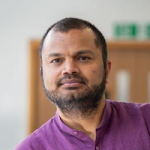
Bhabani Shankar Nayak works as Professor of Business Management,
Remarks by India's Prime Minister at a campaign rally on Sunday drew fierce criticism that he was peddling anti-Muslim tropes
The Associated Press
Krutika Pathi
Published Apr 23, 2024 •
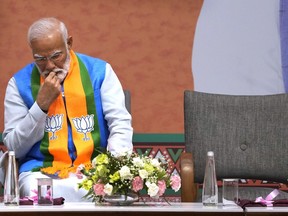
NEW DELHI (AP) — India’s main opposition party accused Prime Minister Narendra Modi of using hate speech after he called Muslims “infiltrators” — some of his most incendiary rhetoric about the minority faith, days after the country began its weeks-long general election.
The remarks at a campaign rally Sunday drew fierce criticism that Modi was peddling anti-Muslim tropes. The Congress party filed a complaint Monday with the Election Commission of India, alleging he broke rules that bar candidates from engaging in any activity that aggravates religious tensions.
Critics of the prime minister — an avowed Hindu nationalist — say India’s tradition of diversity and secularism has come under attack since his Bharatiya Janata Party won power a decade ago. They accuse the party of fostering religious intolerance and sometimes even violence. The party denies the accusation and says its policies benefit all Indians.
At a rally in the state of Rajasthan, Modi said that when the Congress party was in government, “they said Muslims have the first right over the country’s resources.” If it returns to power, the party “will gather all your wealth and distribute it among those who have more children,” he said as the crowd applauded.
“They will distribute it among infiltrators,” he continued, saying, “Do you think your hard-earned money should be given to infiltrators?”
Mallikarjun Kharge, the Congress party’s president, described the prime minister’s comments as “hate speech,” and party spokesperson Abhishek Manu Singhvi called them “deeply, deeply objectionable.”
The party sought action from the election commission, whose code of conduct forbids candidates from appealing “to caste or communal feelings” to secure votes. The first votes were cast Friday in the six-week election, which Modi and his Hindu nationalist BJP are expected to win, according to most surveys. The results come out on June 4.
Asaduddin Owaidi, a Muslim lawmaker and president of the All India Majlis-e-Ittehad-ul-Muslimeen party, said on Sunday: “Since 2002 till this day, the only Modi guarantee has been to abuse Muslims and get votes.”
While there have long been tensions between India’s majority Hindu community and Muslims, rights groups say that attacks against minorities have become more brazen under Modi.
Muslims have been lynched by Hindu mobs over allegations of eating beef or smuggling cows, an animal considered holy to Hindus. Muslim businesses have been boycotted, their homes and businesses have been bulldozed, and places of worship set on fire. There have been open calls for their genocide.
Modi’s remarks referred to a 2006 statement by then-Prime Minister Manmohan Singh of the Congress party. Singh said that India’s lower castes, tribes, women and, “in particular the Muslim minority” deserved to share in the country’s development equally.
“They must have the first claim on resources,” Singh said. A day later, his office clarified that Singh was referring to all of the disadvantaged groups.
In its petition to the election commission, the Congress party said that Modi and the BJP have repeatedly used religion and religious symbols and sentiments in their election campaign with impunity. “These actions have been further bolstered by the commission’s inaction in penalizing the prime minister and the BJP for their blatant violations of electoral laws,” it said.
“In the history of India, no prime minister has lowered the dignity of his post as much as Modi has,” Kharge, Congress’ president, wrote on social media platform X.
The commission can issue warnings and suspend candidates for a certain amount of time over violations of the code of conduct.
“We decline comment,” a spokesperson for the commission told the Press Trust of India news agency on Monday.
In his speech, Modi also repeated a Hindu nationalist trope that Muslims were overtaking the Hindu population by having more children. Hindus make up 80% of India’s 1.4 billion people, while the country’s 200 million Muslims are 14%. Official data shows that fertility rates among Muslims have dropped the fastest among religious groups in recent decades, from 4.4 in 1992-93 to 2.3 between 2019-21, just higher than Hindus at 1.94.
Modi’s BJP has previously referred to Muslims as infiltrators and cast them as illegal migrants who crossed into India from Bangladesh and Pakistan. Several states run by the BJP have also made laws that restrict interfaith marriage, citing the unproven conspiracy theory of “love jihad,” which claims Muslim men use marriage to convert Hindu women.
Through it all, Modi has largely stayed silent, and critics say that has emboldened some of his most extreme supporters and enabled more hate speech against Muslims.
By —Zeba Warsi
Indian Prime Minister Modi hopes to secure a third term in elections now underway. He's promising voters a rising, united India. But in India’s northeast, a state is at war with itself. Hundreds are dead, tens of thousands displaced and the government is accused of looking the other way. Zeba Warsi reports with support from the Unity Productions Foundation. A warning, some details are disturbing.
Read the Full Transcript
Notice: Transcripts are machine and human generated and lightly edited for accuracy. They may contain errors.
Geoff Bennett:
Indian Prime Minister Narendra Modi hopes to secure a third term in elections that are now under way, his promise, a rising united India.
But, in India's northeast, a state is at war with itself. Hundreds are dead, tens of thousands are displaced, and the central government is accused of looking the other way.
Producer Zeba Warsi got rare access to the deeply divided state of Manipur.
And a warning:
Some details in her report are disturbing.
Zeba Warsi:
It feels like a militarized border between two warring countries. But it's a road between two districts in an Indian state.
Across 40 miles, we crossed a dozen checkpoints controlled by Indian security forces and civilian militias to reach the Christian minority stronghold Churachandpur.
Ichan Lunginlal, Churachandpur, India, Resident (through interpreter):
Our fathers and forefathers lived together in Manipur. But the ethnic conflict in Manipur has been so sudden.
Zeba Warsi:
Thirty-one-year-old Ichan Lunginlal is a Hindu from the majority Meitei Tribe who was married to Lalneo Lunginlal, a Christian of the minority Kuki tribe. They fell in love as teenagers. Their youngest daughter is 6-year-old Lamkholhing.
Ichan Lunginlal (through interpreter):
We could not spend even one day apart. It felt like a love straight out of a movie. It was difficult for us to spend any time away from each other.
Zeba Warsi:
They did not consider themselves star-crossed, but their love story ended when Manipur's fault lines cracked.
Ichan Lunginlal (through interpreter):
I spoke to him and asked, how is the situation right now? He responded and said the situation has become tense now. I could also hear his voice shaking, but he still consoled me and said: "Don't worry."
At around 11:
00 p.m. to 12:00 a.m., I received a call from my husband, and I could hear him shouting: "Ichan, Ichan, they have found me and they are going to kill me."
Zeba Warsi:
What began last may as a protest over political participation and state benefits turned into an armed conflict between two tribes and religions that engulfed the state in flames. Entire villages were razed and hundreds of churches burned.
The bulk of the dead and missing belong to the Christian Kuki minority, including Lalneo Lunginlal. He was last seen in this video with two other Christian Kuki men left to bleed on the street.
Ichan Lunginlal (through interpreter):
The mob killed my husband after brutally assaulting him like an animal. I don't think even animals are subject to such levels of violence.
Zeba Warsi:
At the wall of remembrance, Kukis display death, empty coffins in a line, one for every life lost.
This wall bears the human cost of this conflict. The Kuki community calls it state-sponsored ethnic cleansing, and they tell us each picture on this wall has its own story to tell.
Prime Minister Narendra Modi portrays India's future as strong and united. But Election Day in Manipur was marred by violence. The Hindu majority Meitei militia allegedly captured polling booths. They are heavily armed and throughout the conflict accused of killing with impunity.
Civil rights advocates accuse the state government run by Modi's Bharatiya Janata Party, or BJP, of protecting the perpetrators, and exploiting ethnic divisions.
Kim Gangte, Kuki Women’s Human Rights Network:
This is a war crime. This is ethnic cleansing. And, plus, this is a religious persecution.
Zeba Warsi:
Kim Gangte is a Kuki women rights activist who has documented sexual crimes.
Kim Gangte:
Most of our women who are there in the valley, they were being tortured. They were being raped. They were being killed.
Zeba Warsi:
In May last year, two Kuki women were paraded naked, beaten, and sexually assaulted by a mob of hundreds. One of them was allegedly gang-raped.
Kim Gangte:
We are very much Indian. We are very much the daughters and sons of India. We really wonder why the central government is still keeping silent.
Zeba Warsi:
Repeated requests for an interview with state government officials were ignored. After months of silence, Modi addressed the turmoil in Manipur only after the report of a gang-rape.
Narendra Modi, Indian Prime Minister (through interpreter):
In this country, in any corner of this country, in any state government rising above politics, law and order and respect for women is important. I want to assure the countrymen that no culprit will be spared.
Zeba Warsi:
But for the Christian Kuki community, that reassurance rings hollow. They no longer believe in living with the Hindu Meiteis. They want separate union territory, as we saw in the hillside town of Moreh.
Last year, this local economic hub was engulfed in flames. Today, it is heavily guarded by Indian armed forces and nearly inaccessible to anyone outside. After a six-hour wait at a security checkpoint, we were allowed to enter.
David Wapei, Kuki Student Organization:
The moment one community sees the other community, they want to kill each other.
Zeba Warsi:
David Wapei is a Kuki activist in Moreh. He says there is an invisible boundary between these hillside towns and the capital forged on hate.
David Wapei:
There's so much of divisions or mistrust between the two communities that the two communities cannot live together now.
Zeba Warsi:
But Manipur's violence is on both sides. During our visit, an angry Kuki mob set the police station on fire. And more Hindu majority Meiteis have been forced out of their homes and now live in camps restricted to a small corner of the state.
Hijam Kulajit, Imphal, India Resident (through interpreter):
On that day I couldn't take her to her private tutor, as I usually could, as there was pain in my eye. This thought haunts me to this day.
Zeba Warsi:
Hijam Kulajit, a Hindu Meitei, is still to bury his 17 year old daughter with dignity. She was last seen with a classmate after they were abducted by Kuki militias. After weeks of outrage and protests, the accused were arrested, but her body was never found.
Kulajit has made a shrine of memories of his daughter, who had big dreams.
Hijam Kulajit (through interpreter):
She had a cup with future she had a cup with "Future Doctor" written on it. She wanted to become a doctor to help the underprivileged.
Zeba Warsi:
The last drawing she made, the last book she read, her last Father's Day card bring pain, tears, and rage.
Hijam Kulajit (through interpreter):
Prime Minister Narendra Modi did not utter a single word about this case or the violence in Manipur all these month, even though the prime minister's so called slogan is save daughter, educate daughter. Will they be able to bring back my daughter?
Zeba Warsi:
There is no justice for a father who lost his daughter. And there is no closure for victims on both sides, who say they have been neglected.
For the "PBS NewsHour," I'm Zeba Warsi in Manipur, India.
—-
Neel Madhav, Omair Farooq and Alishan Jafri contributed to field producing this piece.
This reporting was supported by a grant from Unity Productions Foundation
Watch

Zeba Warsi is a foreign affairs producer, based in Washington DC. She's a Columbia Journalism School graduate with an M.A. in Political journalism.
